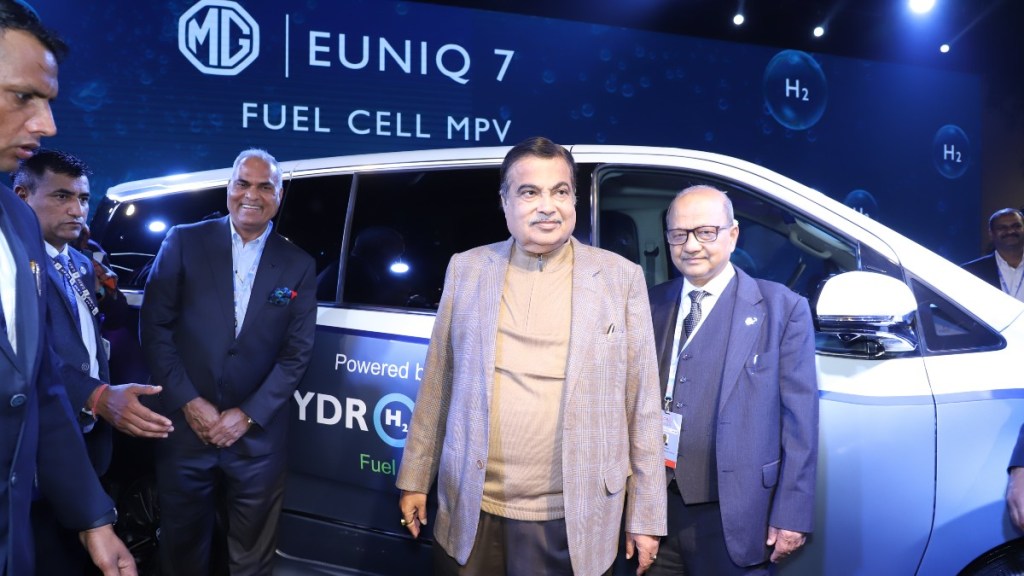Hydrogen as an alternative fuel option is gaining momentum, going by the trend across the Auto Expo 2023. MG Motor India showcased its new energy vehicles (NEVs) with third-generation hydrogen fuel cell technology. The hydrogen fuel-cell system was first launched as the Phoenix No 1 fuel-cell vehicle project in 2001.
Rajeev Chaba, President and Managing Director, MG Motor India, said, “As the industry continues exploring alternate fuel technologies, we are delighted to showcase the world’s leading hydrogen fuel-cell technology – PROME P390 to India.”
Fuel cell vehicles that use hydrogen as fuel have significant advantages such as being pollution-free, high efficiency, high load, fast refuelling, and long battery life. The question therefore is how does a hydrogen fuel cell car work and when compared with an electric car how do these stack up? Here is a quick look-
Driving range
So far the maximum range for BEVs, as certified by ARAI, is around 250 kmph on a single. However the hydrogen-powered vehicles have densely packed energy storage. This inevitably increases the range that a vehicle can run on a simgle charge. The Toyota Mirai, India’s first fuel cell EV or Hydrogen-based Advanced Fuel Cell Electric Vehicle has been launched with a capability of offering a range upto 600 km on a single charge.
Time for refuelling
It is a common knowledge that batteries do take time to charge, at least 4-8 hours. While, technology is no doubt evolving at a fast pace to fasten up the pace of charging and offer battery swapping as a standard solution, refuelling hydrogen-powered cars are relatively more seamless, as we see it today. On an average pumps take in about 5-10 mins to pump in a kg of hydrogen. A back of hand calculation indicates a kg of hydrogen is capable of soring over 200x energy than a kg of lithium-ion battery.
Ease of refuelling
This is of course a debatable matter in the Indian context. Infrastructure is in the development stage for both EV charging stations and hydrogen refuelling stations. But in the current context, there is significantly lot more electric charging stations in the country vs hydrogen refuelling sttaions. Also an average car can be charged inside the parking lot too at night.
However, there are some questions that still remain unanswered, the relative safety of hydrogen cars Vs electric ones or the triggers for the slow pace of development and adoption of hydrogen cars.
